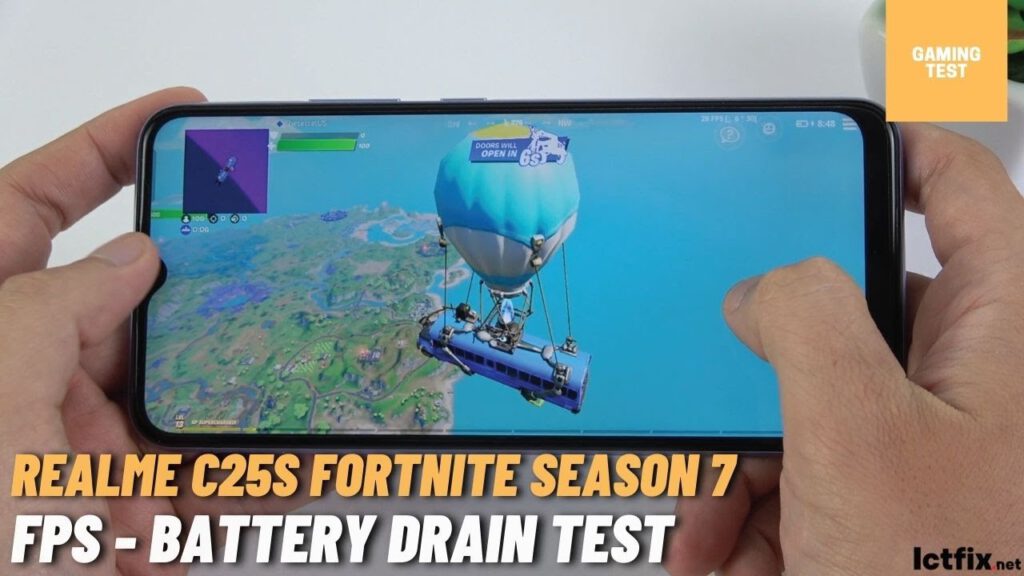Realme C25s test game Fortnite Mobile | MediaTek Helio G85, 4GB RAM. Mali-G52 GPU for better image processing and impressive user experience.
Video Realme C25s test game Fortnite Mobile | MediaTek Helio G85, 4GB RAM:
The device uses MediaTek Helio G85 CPU that can meet daily entertainment tasks as well as play today’s popular games stably with appropriate configuration, Mali-G52 GPU for image processing capabilities better images and provide an impressive user experience.
Comes with 4 GB RAM, 128 GB internal memory to meet the needs of smooth multitasking and store information, images, applications, … comfortably, supporting capacity expansion via card MicroSD memory up to 256 GB, so you don’t have to worry about storage space for the device.
Thanks for watching ! If there are questions about: “Realme C25s test game Fortnite Mobile | MediaTek Helio G85, 4GB RAM” You can comment I will try to answer soon. Please like, subscribe to my channel to motivate me to make even better videos or post.
SUBCRIBE MY CHANNEL HERE !
See more:
Xiaomi Redmi Note 10 vs Samsung Galaxy A32 | Snapdragon 678 vs Helio G80 Speedtest, Comparison
Redmi Note 10s vs Redmi Note 10 5G | Helio G95 vs Dimensity 700 Speedtest, Camera Comparison
Redmi Note 10 Pro vs iPhone 12 Pro Max | Snapdragon 732G vs Apple A14 Speedtest, Comparison
Vivo V20 vs Xiaomi Poco X3 NFC | Snapdragon 732G vs Snapdragon 720G | SpeedTest, Camera Comparison
Oppo A93 vs iPhone 8 Plus | Helio P95 vs Apple A11 | Fingerprint, SpeedTest, Comparison
Oppo A93 vs Xiaomi Mi Note 10 Lite | Helio P95 vs Snapdragon 730G | Fingerprint, SpeedTest
Mi 11 Lite vs Xiaomi Mi 10T Pro | Video test Display, SpeedTest, Camera Comparison
Mi 10T Pro PUBG Gaming test New Update Godzilla vs Kong 90fps | Snapdragon 865, 144Hz
Xiaomi Mi 11 Lite PUBG Mobile Gaming test New Update Godzilla vs Kong | FPS, Battery Drain Test
Samsung Galaxy A80 PUBG Gaming test 2021 | Snapdragon 730, 8GB RAM
Samsung Galaxy A72 PUBG Gaming Review New Update
Samsung Galaxy A22 test game Fortnite Mobile | MediaTek MT6769V, 90Hz Display

